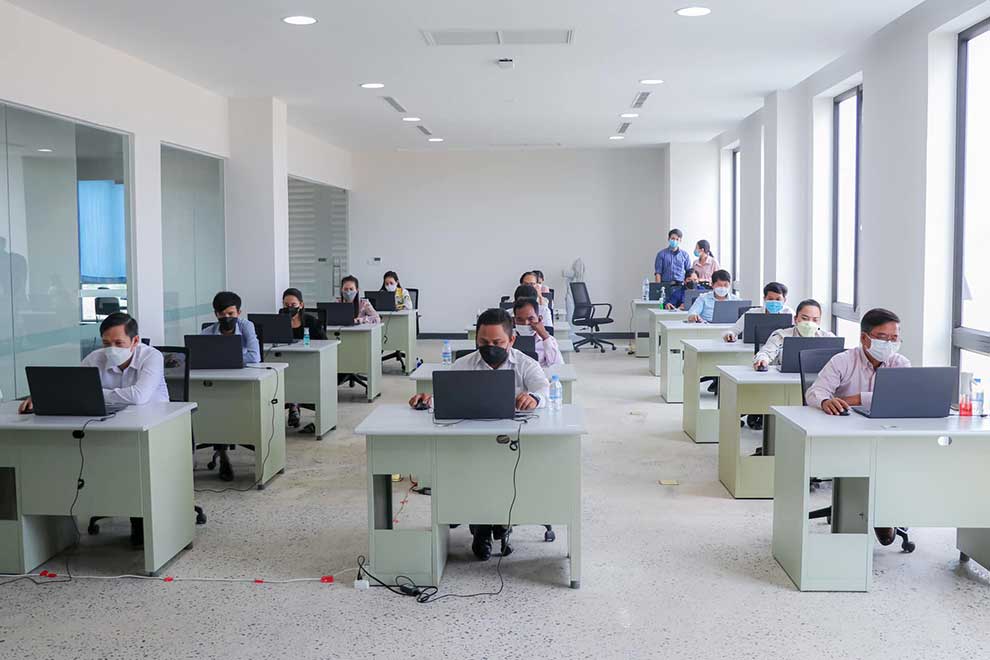
Officials attend the Digital Skills Training for Civil Servants offered by the telecoms ministry in November last year. TELECOMS MINISTRY
The Ministry of Post and Telecommunications’ Cambodia Academy of Digital Technology has announced that it provided digital skills training for 650 civil servants between November and March, offering certificates upon completion that it says will prove their digital competency.
Tol Gnak, head of the ministry’s General Department, said on March 30 that the ministry initiated the training for officials to “strengthen their digital capabilities” and to “make it easier for them to perform their work in the future.”
“As long as we have a digital strategy, we want to push the digital development policy, and such work starts with the ministry. We created these training sessions for officials so that upon completion, they have certificates to prove their digital skills,” he said.
The ministry said in a Facebook post on March 29 that, since November, its academy had provided training for 650 of its civil servants, who were tested on their abilities to use digital technology and presented with certificates upon passing.
It added that the “necessary” digital skills training was intended to increase the capabilities of civil servants “both young and old” with regards to using information technology to perform daily work, managing and providing public services effectively, efficiently and using digital safety best practices.
The ministry said the provision of training was in line with digital government, economic and social policy and was the “result of recommendations” made by Prime Minister Hun Sen.
According to the ministry, the training sessions covered what it considered the “key curricula” of understanding the use and maintenance of computers, the key Internet functions of identifying, searching, evaluating and using information effectively, as well as to understand how to protect their security and privacy.
Independent digital security consultant Nget Mose said that in general, learning about digital technology would make office work “easier”. The change from written to typed documents may be difficult for beginners, he said, but “it will facilitate filing documents, and data is generally much safer than physical documents. A digital system also makes it easier to find information when needed.”
“Nowadays we work not alone, but as a team. So if we educate ourselves to be digitally savvy, we can learn a lot from computers and the Internet, and we can, as a team, use electronic programmes to facilitate joined-up work in the office,” he said.
Mose added that previously, some documents had been produced by just one person. But with the use of digital technology, workers can collaborate in real-time using software suites such as Microsoft 365 to save time on seeking input from colleagues in person.












